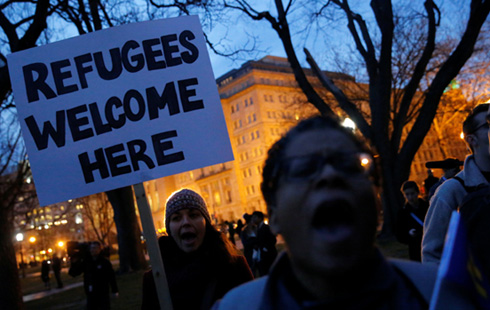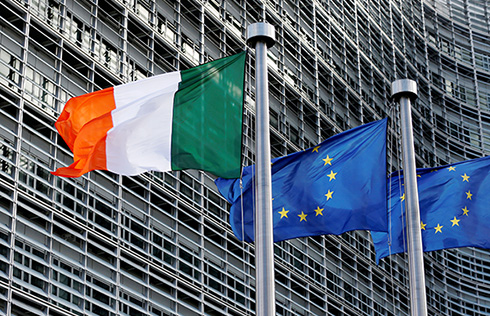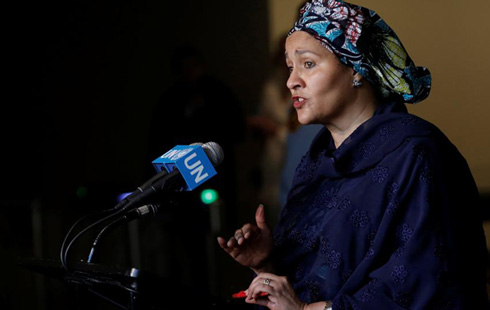US Attorney General steps aside from Russia probe under pressure
But Sessions faced a rising chorus of demands that he resolve the seeming contradiction between his two conversations in the summer and fall with Kislyak and his sworn statements to Congress in January, when he said he had not had communications with Russians during the campaign.
The Justice Department said he met with Kislyak in his role as a member of the Senate Armed Services Committee, not in his role as a Trump adviser with the campaign, and that led to his answers.
The attorney general, an early backer and key adviser for Trump's campaign, said he decided to recuse himself for investigations that are underway and others to come after his staff recommended he do so. Acting Deputy Attorney General Dana Boente will handle such matters for now.
Sessions added that his announcement "should not be interpreted as confirmation of the existence of any investigation."Some Democrats called for Sessions not only to recuse himself but to resign.
House Minority Leader Nancy Pelosi, who had accused Sessions of "lying under oath," repeated her call for his resignation after he recused himself. Senate Democratic leader Chuck Schumer said a special prosecutor should be appointed to examine whether the federal investigation into Kremlin meddling — and into possible contacts between Trump associates and Russians — had been compromised by Sessions. Democrats also sought a criminal perjury investigation.
More than a half dozen Republican lawmakers, including some who consider themselves personally close to Sessions, had urged him to recuse himself from the probe. Sen. Tom Cole of Oklahoma said he didn't believe Sessions could have colluded with Russia, but "If there is an investigation, he probably shouldn't be the person leading it."The Justice Department acknowledged two separate Sessions interactions with Kislyak, both coming after cybersecurity firms had concluded that Russian intelligence agencies were behind cyber-hacking of the Democratic National Committee.
The first occurred after a Heritage Foundation event during the Republican National Convention in July, when the department says a group of envoys — including the Russian ambassador — approached Sessions. The second was a September conversation, which the department likened to the more than 25 discussions Sessions had with foreign ambassadors last year as a senior member of the Senate Armed Services Committee.
But Sessions did not disclose his discussions with Kislyak at his Senate confirmation hearing in January when asked what he would do if "anyone affiliated" with the campaign had been in contact with officials of the Russian government.
Sessions said he knew of no such contacts. He added, "I have been called a surrogate at a time or two in that campaign and I didn't have, did not have communications with the Russians, and I'm unable to comment on it."He answered "no" in a written questionnaire when asked about contacts regarding the election.
Dmitry Peskov, the spokesman for Russian President Vladimir Putin, said it was normal for Russian diplomats to meet with US lawmakers. A spokeswoman for the Russian Foreign Ministry, Maria Zakharova, told AP that meetings with American political figures were part of the embassy's "everyday business." Revelations of the contacts, first reported by The Washington Post, came amid a disclosure by three administration officials that White House lawyers have instructed aides to Trump to preserve materials that could be connected to Russian meddling in the American political process.
Sessions is not the first attorney general to disengage, or take a reduced role, in a high-profile matter. Attorney General Loretta Lynch last summer agreed to do so at the recommendation of the FBI in the Hillary Clinton email matter after an impromptu meeting with Bill Clinton on her airplane.
AP
- Trump's blame for US factory closings a 'stretch'
- Trump's defense plan draws response
- Trump poised to lift federal coal ban, other green rules: White House
- Trump reiterates support for NATO, urges allies to share cost
- Trump opens door to immigration reform in speech to Congress
- Trump eyes jump in military spending




















